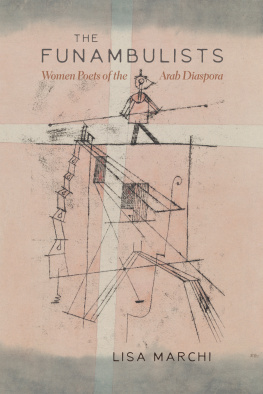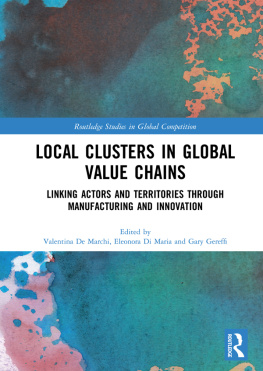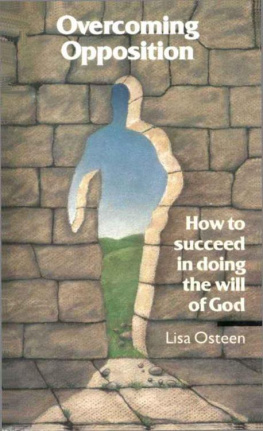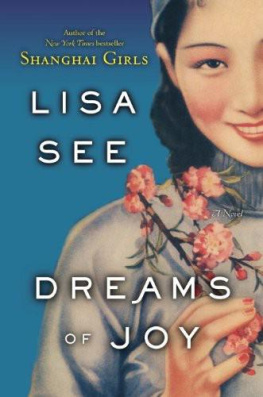Lisa Marchi - The Funambulists
Here you can read online Lisa Marchi - The Funambulists full text of the book (entire story) in english for free. Download pdf and epub, get meaning, cover and reviews about this ebook. year: 2022, publisher: Syracuse University Press, genre: Romance novel. Description of the work, (preface) as well as reviews are available. Best literature library LitArk.com created for fans of good reading and offers a wide selection of genres:
Romance novel
Science fiction
Adventure
Detective
Science
History
Home and family
Prose
Art
Politics
Computer
Non-fiction
Religion
Business
Children
Humor
Choose a favorite category and find really read worthwhile books. Enjoy immersion in the world of imagination, feel the emotions of the characters or learn something new for yourself, make an fascinating discovery.
- Book:The Funambulists
- Author:
- Publisher:Syracuse University Press
- Genre:
- Year:2022
- Rating:4 / 5
- Favourites:Add to favourites
- Your mark:
- 80
- 1
- 2
- 3
- 4
- 5
The Funambulists: summary, description and annotation
We offer to read an annotation, description, summary or preface (depends on what the author of the book "The Funambulists" wrote himself). If you haven't found the necessary information about the book — write in the comments, we will try to find it.
The Funambulists — read online for free the complete book (whole text) full work
Below is the text of the book, divided by pages. System saving the place of the last page read, allows you to conveniently read the book "The Funambulists" online for free, without having to search again every time where you left off. Put a bookmark, and you can go to the page where you finished reading at any time.
Font size:
Interval:
Bookmark:


Select Titles in Gender, Culture, and Politics in the Middle East
Anxiety of Erasure: Trauma, Authorship, and the Diaspora in Arab Womens Writings
Hanadi Al-Samman
The Best of Hard Times: Palestinian Refugee Masculinities in Lebanon
Gustavo Barbosa
Iranian Women and Gender in the Iran-Iraq War
Mateo Mohammad Farzaneh
Palestinian Women and Muslim Family Law in the Mandate Period
Elizabeth Brownson
Palestinian Womens Activism: Nationalism, Secularism, Islamism
Islah Jad
Unveiling Men: Modern Masculinities in Twentieth-Century Iran
Wendy DeSouza
Women, Art, and Literature in the Iranian Diaspora
Mehraneh Ebrahimi
Working Out Desire: Women, Sport, and Self-Making in Istanbul
Serta Sehlikoglu
For a full list of titles in this series, visit https://press.syr.edu/supressbook-series/gender-culture-and-politics-in-the-middle-east/.

Copyright 2022 by Syracuse University Press
Syracuse, New York 13244-5290
All Rights Reserved
First Edition 2022
222324252627654321
The paper used in this publication meets the minimum requirements of the American National Standard for Information SciencesPermanence of Paper for Printed Library Materials, ANSI Z39.48-1992.
For a listing of books published and distributed by Syracuse University Press, visit https://press.syr.edu/.
ISBN: 978-0-8156-3755-4 (hardcover)
978-0-8156-3752-3 (paperback)
978-0-8156-5547-3 (e-book)
Library of Congress Cataloging-in-Publication Data
Names: Marchi, Lisa, author.
Title: The funambulists : women poets of the Arab diaspora / Lisa Marchi.
Description: First edition. | Syracuse, New York : Syracuse University Press, 2022. | Series: Gender, culture, and politics in the Middle East | Includes bibliographical references and index.
Identifiers: LCCN 2022012340 (print) | LCCN 2022012341 (ebook) | ISBN 9780815637554 (hardcover ; alk. paper) | ISBN 9780815637523 (paperback ; alk. paper) | ISBN 9780815655473 (ebook)
Subjects: LCSH: Poetry, ModernWomen authorsHistory and criticism. | Poetry, ModernArab authorsHistory and criticism. | Women and literature. | LCGFT: Literary criticism.
Classification: LCC PN1091 .M37 2022 (print) | LCC PN1091 (ebook) | DDC 809.1/99287089927dc23/eng/20220509
LC record available at https://lccn.loc.gov/2022012340
LC ebook record available at https://lccn.loc.gov/2022012341
Manufactured in the United States of America
To Beirut and its worldly-wise people, for granting me each time the beauty of a new beginning
...
.
/
[ [
By travelling freely across cultures
those in search of the human essence
may find a space for all to sit....
Here a margin advances. Or a center
retreats. Where East is not strictly east,
and West is not strictly west,
where identity is open onto plurality,
not a fort or a trench/
Mahmoud Darwish, Edward Said: A Contrapuntual Reading
This book benefited from the knowledge, support, and encouragement of many colleagues and friends. My greatest debt goes to Giovanna Covi for years of friendship, guidance, and close collaboration. I wish to acknowledge the University of Trento, Department of Humanities, for providing funding and support services for the development of this book, and the permanent poetry seminar SEMPER directed by Pietro Taravacci and Francesco Zambon for being a stimulating arena for discussion. The JFK Institute at the Free University in Berlin offered a research grant that proved invaluable for the realization of this project, while the Center for Transdisciplinary Gender Studies at the Humboldt University granted time and space to develop this study. I thank both institutions for their support.
Many of the questions explored in this book have been inspired by the colloquia and seminars organized by Giorgio Mariani and Donatella Izzo at the OASIS Summer School (University of Naples, LOrientale) on the Island of Procida. My participation to the international research groups Behind the Looking Glass: Other-Cultures-Within Translating Cultures and Out of the Ordinary: Challenging Commonplace in Anglophone Literature offered inspiring insights and exchanges. I am grateful to Joan Anim-Addo (Goldsmiths, University of London) and Joel Kuortti (Turku University, Finland) for inviting me to join these groups.
This project would not have been possible without the support and generosity of friends and colleagues in Beirut and abroad. I wish to thank the staff at the AUB (in particular Carla Chalhoub) and at the OIB for facilitating my library access during the days of the revolution. My warmest gratitude to Rula Jurdi Abisaab, Gerardo Acerenza, Pirjo Ahokas, Hazim Alabdullah, Elisabetta Benigni, Andrea Carosso, Tamara T. Chin, Cristina Dozio, Ira Dworkin, Amina Elhalawani, Leela Gandhi, Nathalie Handal, Sirne H. Harb, Michelle Hartman, Rana Issa, Mina Karavanta, Musa Khamushi, William G. Martin, Henry Matthews, Samuela Pagani, Rajagopalan Radhakrishnan, Fatima Sai, Cinzia Schiavini, and Mirella Vallone for their encouragement and support. I owe special thanks to Georges Abou-Hsab and Prashant Keshavmurthy for their enduring friendship, generous reading, and insightful comments on earlier drafts of some of the chapters included in this book. I also would like to acknowledge the colleagues of the Italian Association for American Studies (AISNA) and the Italian Society for the Study of the Middle East (SeSaMO) for sharing thoughts and critiques.
Sections of this volume have been presented at conferences in Washington, DC, at Cairo University, El Jadida University in Morocco, the AUB, the University of Catania, and the University Eastern Finland. I wish to thank the organizers and participants of the AGYA conference Destruction/(Re)construction: Interdisciplinary Perspectives on Cultural Heritage in Conflict, particularly Julia Hauser, Konstantin Klein, Lena-Maria Mller, Mohammad Alwahaib, Bilal Orfali and Stefan Tobias Maneval for rich conversations and exchanges. I am grateful to the organizers and participants of the Conceptions and Configurations of the Arabic Literary Canon workshop organized at the Columbia Global Center in Paris for providing meaningful feedback. My heartfelt appreciation to Muhsin al-Musawi, Claire Gallien, Sara R. bin Tyeer, Abdelfattah Kilito, Marina Warner, Omnia El Shakry, Lara Harb, and Marwa Elshakry for their enthusiasm, advice, and support.
I owe the editorial team at Syracuse University Press, especially Acquisition Editor Margaret Solic and the anonymous reviewers, my thanks for careful reading and essential suggestions.
Last but not least, I wish to thank my family and close friends for their unfaltering love and trust.

Parts of this book have appeared previously in print. I am grateful for the permission to reprint this material here.
A section of first appeared in Italian as Dis/Equilibri: Districare il nodo genere e potere nella poesia araba diasporica, in Districare il nodo genere-potere: sguardi interdisciplinari su politica, lavoro, sessualit e cultura
Next pageFont size:
Interval:
Bookmark:
Similar books «The Funambulists»
Look at similar books to The Funambulists. We have selected literature similar in name and meaning in the hope of providing readers with more options to find new, interesting, not yet read works.
Discussion, reviews of the book The Funambulists and just readers' own opinions. Leave your comments, write what you think about the work, its meaning or the main characters. Specify what exactly you liked and what you didn't like, and why you think so.











